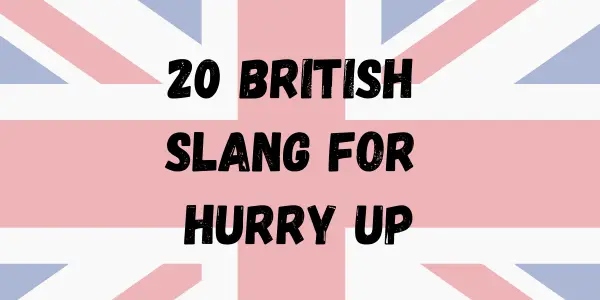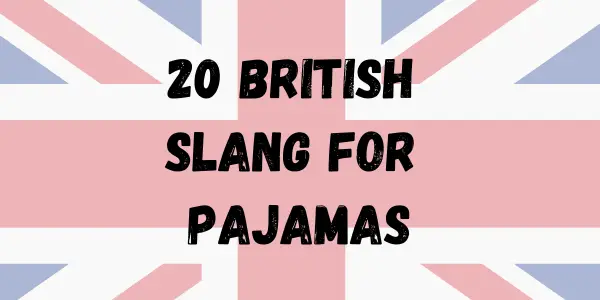In British slang, “tosh” is used to describe nonsense or rubbish. It can be compared to words like malarkey or baloney in American English.
Another slang term for nonsense is “ridic”, which means something is stupid or ridiculous. These terms are becoming more popular, although not widely used. Other British slang words for nonsense include bosh, codswallop, drivel, hogwash, horsefeathers, humbug, poppycock, and rubbish.
This article will explore 20 different British slang terms for nonsense, providing a unique and SEO-friendly explanation of each term.
1. What Is British Slang For Nonsense?
Discover 20 British slang words for nonsense, including “tosh,” meaning “nonsense or rubbish,” and “ridic,” a shortened form of ridiculous. Other options include “balderdash,” “poppycock,” and “codswallop. ” So the next time someone speaks a load of tosh, you’ll know exactly how to respond.
Tosh: Definition And Usage Of The Term ‘Tosh’:
- Tosh is a British slang term that is used to describe nonsense or rubbish.
- It can be used to refer to something that is completely untrue or a statement that has no credibility.
- The term ‘tosh’ is often used in a playful or sarcastic way to dismiss or mock someone’s ideas or opinions.
Examples Of How ‘Tosh’ Is Used In British Slang:
- “Don’t listen to him, he’s talking absolute tosh!”
- “The new government policy is a load of tosh!”
- “I can’t believe anyone would believe such tosh!”
Comparison To Similar Terms In American English:
- In American English, similar terms to ‘tosh’ would be malarkey or baloney.
- These terms are also used to describe nonsense or something that lacks credibility.
- While the specific words may differ, the concept of dismissing or ridiculing nonsense is universal in both British and American slang.
Now, let’s move on to explore more British slang for nonsense!
2. Ridiculous British Slang For Nonsense.
Discover 20 British slang words for nonsense, including “tosh” meaning rubbish or baloney, and “ridic” for something stupid or ridiculous. Expand your vocabulary with these amusing and unique expressions.
Ridic: Explanation Of The Term ‘Ridic’ And Its Usage.
‘### Ridic’ stands for ‘ridiculous,’ and it is a British slang term used to describe something that is very stupid or absurd. It is a shortened form of the word ‘ridiculous. ‘ Here’s some information about the term ‘ridic’ and how it is used:
- Ridic is a more recent slang term that has gained popularity in British English.
- It is often used to express disbelief or amusement at something that is nonsensical or illogical.
- Similar to other slang terms for nonsense, ridic is used to dismiss or criticize something that is considered dumb or silly.
Recent Popularity Of The Term.
- Although ridic is not the most widely used term for nonsense, it has been gaining popularity in recent years.
- It is often used in casual conversations, especially among younger generations.
- Ridic has also made its way into popular culture, appearing in TV shows, movies, and music.
Similarities And Differences To Other Slang Terms For Nonsense.
- Ridic shares similarities with other British slang terms for nonsense, such as ‘tosh,’ ‘balderdash,’ and ‘poppycock.’
- These terms are all used to describe something that is silly or nonsensical.
- However, each term has its own unique connotations and usage.
- Ridic is more commonly used to express disbelief or amusement, while other terms like ‘tosh’ or ‘poppycock’ are used to dismiss something as nonsensical or untrue.
‘ridic’ is a slang term used in British English to describe something that is very stupid or absurd. It has gained popularity in recent years and is often used to express disbelief or amusement. While it shares similarities with other slang terms for nonsense, such as ‘tosh’ or ‘poppycock,’ it has its own unique usage and connotations.
3. Old English Slang For Nonsense.
Old English slang for nonsense includes terms such as bosh, codswallop, and poppycock, among others. These expressions are commonly used in British slang to describe something that is ridiculous or nonsensical.
Exploration Of Old English Terms For Nonsense:
- Old English slang for nonsense encompasses a variety of colorful and expressive terms. These terms offer a fascinating glimpse into the language and culture of that time.
- The following Old English slang terms were commonly used to describe nonsense:
- Bosh: Meaning “foolish talk” or “nonsense,” this term originated from the Romany language spoken by the Gypsies.
- Codswallop: This term originated in the early 20th century and was used to refer to senseless talk or rubbish.
- Drivel: Used to describe foolish or nonsensical talk, drivel dates back to the late 16th century.
- Hogwash: This term, originating from the 17th century, was used to describe nonsensical statements or empty talk.
- Horsefeathers: A playful term used to indicate nonsense or foolishness, horsefeathers originated in the early 20th century.
- Humbug: This term, popularized by Charles Dickens’ novel “A Christmas Carol,” refers to deceptive or dishonest talk.
- Poppycock: Originating from the Dutch word for “soft dung,” poppycock is a term used to describe nonsense or rubbish.
- Rubbish: Though a more common term today, rubbish has been used for centuries to refer to worthless or nonsensical things.
Discussion On How These Terms Have Evolved Or Changed Over Time:
- Over the years, the meanings and usage of these Old English slang terms for nonsense have evolved. Here are some observations:
- Some terms, like codswallop and horsefeathers, have retained their original meanings and are still widely used today.
- Other terms, like bosh and poppycock, may have fallen out of common usage but can still be found in literature from that era.
- Humbug has taken on a secondary meaning, referring to anything that is deceptive or insincere.
- Rubbish, while originally used to describe nonsense, is now primarily associated with trash or garbage.
Comparison Of Old English Slang To Modern British Slang For Nonsense:
- When comparing Old English slang to modern British slang for nonsense, we can see both parallels and differences. Here are a few examples:
- Modern British slang for nonsense includes terms like tosh, meaning “nonsense” or “rubbish,” and ridic, short for “ridiculous.”
- While some terms, like codswallop and rubbish, have endured throughout the years, others, like bosh and poppycock, have fallen out of common usage.
- Modern British slang reflects the evolving nature of language and the influence of pop culture.
- Despite the changes in slang terms, the underlying concept of nonsensical talk remains the same.
Explore More British Slang Words For Nonsense In Alphabetical Order:
- An extensive range of British slang words for nonsense exists beyond the Old English terms. Here are a few additional examples in alphabetical order:
- Balderdash: Meaning “senseless talk” or “nonsense,” balderdash is a playful yet expressive term.
- Gobbledygook: Describing confusing or unintelligible language, gobbledygook adds a touch of whimsy to the notion of nonsense.
- Malarkey: This term refers to exaggerated or foolish talk and is often used in a lighthearted manner.
- Nonsense: While not slang per se, “nonsense” itself remains a commonly used word to describe absurd or baseless statements.
- Tomfoolery: This term is used to express silly or foolish behavior, often associated with playful nonsense.
Check Out Additional Slang Terms For Nonsense In British English:
- British English is known for its colorful and inventive slang. Here are some other slang terms for nonsense that you might find interesting:
- Baloney: Originating from American English, baloney is used metaphorically to mean “nonsense” or “rubbish.”
- Guff: A colloquial term for nonsense or rubbish, guff is commonly used in British English.
- Piffle: Used to describe foolish or trifling talk, piffle adds an element of whimsy to the concept of nonsense.
- Tosh: Tosh is a slang term meaning “nonsense” or “rubbish,” and is often used in a dismissive or sarcastic manner.
Learn About The Origins And History Of British Slang For Nonsense:
- The origins and history of British slang for nonsense are intertwined with the rich tapestry of the English language. Exploring their origins can provide valuable insights into the evolution of the language and its cultural influences.
Frequently Asked Questions For 20 British Slang For Nonsense
What Is British Slang Word For Nonsense?
The British slang word for nonsense is “tosh” or “ridic. “
What Is The British Slang For Ridiculous?
The British slang for ridiculous is “Ridic” or “Tosh. ” It means something is very stupid or nonsensical.
How Do You Say Nonsense In Old English?
The Old English word for nonsense is not well-documented, but in British slang, “tosh” is often used.
Faq 1: What Is The Meaning Of “Tosh” In British Slang?
Tosh means “nonsense” or “rubbish” in British slang. It is similar to words like malarkey or baloney in American English. For example, you can describe a TV show as absolute tosh or say that someone’s speech is a load of tosh.
Conclusion
In the vibrant world of British slang, there is no shortage of colorful expressions for nonsense. From “tosh” to “bollocks,” these slang words add a touch of personality and flair to everyday conversations. Whether you’re a native Brit or a visitor to the UK, incorporating these slang terms into your vocabulary can make you feel like a true local.
Some popular British slang words for nonsense include “tosh,” which means “rubbish” or “nonsense,” and “bollocks,” which is a more extreme term for nonsense. Other playful expressions include “drivel,” “hogwash,” and “poppycock,” adding a touch of whimsy to any conversation.
While these slang terms may not be widely used in everyday speech, they offer a glimpse into the rich tapestry of British language and culture. So, next time you find yourself in need of a word to express disbelief or disagreement, why not try dropping one of these British slang terms for nonsense?
You’re sure to make an impression and have a bit of fun in the process. Happy slang-ing!

